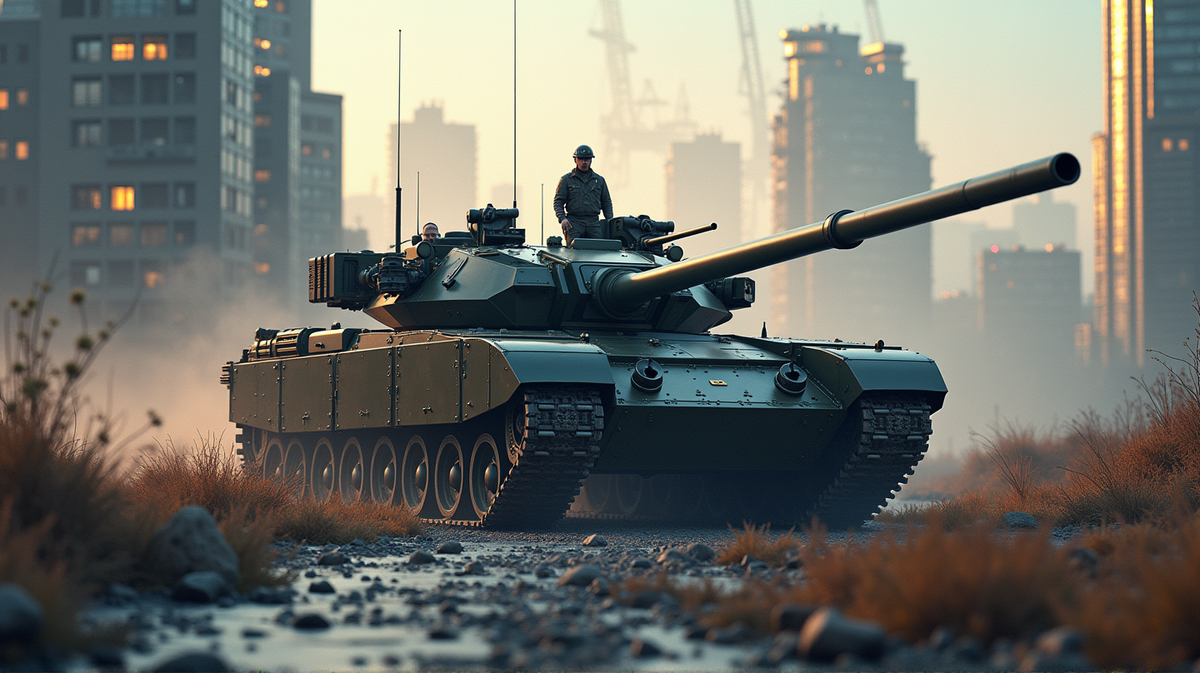Germany's Military Spending: Economic Booster or Risky Gamble?
Germany's significant investment in defense raises questions about broader economic impacts, featuring insights from industry stakeholders and economists.

A New Era of Defense Spending
Germany, a nation primed for transformation, made history when its parliament approved a massive state-funded venture—a sweeping package to revamp the country’s infrastructure and lift constraints on national defense spending. This ambitious move seeks to fortify Germany’s military might, positioning the Bundeswehr as Europe’s premier conventional army, as emphasized by Chancellor Friedrich Merz and Defense Minister Boris Pistorius.
Economic Stimulus or Short-Lived Boom?
The major beneficiaries of this financial infusion are not only companies involved in infrastructure projects like roads and internet networks but also the German defense industry, which is seeing an unprecedented resurgence. Shares in leading arms manufacturer Rheinmetall have surged dramatically, marking a renaissance for a sector once deemed negligible. According to DW, defense spending is hailed by industry leaders like Oliver Dörre of Hensoldt as a “gigantic economic stimulus,” though some economists remain skeptical.
Insights from Economic Experts
Despite the promising outlook from industry insiders, economists like Tom Krebs and Patrick Kaczmarczyk offer a more tempered perspective. Their study reveals that while defense investment might stimulate economic activity, it provides modest returns—leaving industry stakeholders pondering the true benefit to Germany’s GDP. The economists’ reservations are rooted in the concept that military assets, unlike infrastructure or education, don’t inherently generate further economic value.
The Military as Economic Insurance
Defense expenditures are often likened to purchasing insurance; they ensure national safety without a tangible return unless conflict arises. Conversely, investments in infrastructure and education could deliver twice to thrice the economic impact, fostering long-term growth by enhancing productivity and creating opportunities.
The Complicated Landscape of Defense Economics
Though defense production contributes minimally to broader economic growth, firms like Rheinmetall are operating full throttle, with order backlogs ballooning since the onset of the Ukraine conflict. As supply struggles to match demand, prices climb, sparking concerns about inflation rather than industrial advancement.
Civil Sectors Join the Defense Gold Rush
Non-defense businesses, having grappled with economic downturns, eye defense contracts as a means to cushion fiscal blows. Notable firms, from engine manufacturers Deutz AG to automotive giants like Volkswagen, are pivoting toward defense, hoping to stabilize and leverage the thriving defense market for growth—all while existing industries like metalworking benefit from rising demand.
Germany’s forward-strategized military spending poses an intricate challenge: balancing immediate defense needs against sustainable economic growth potential. As the nation treads this complex path, the ripple effects of this historical fiscal injection await scrutiny.